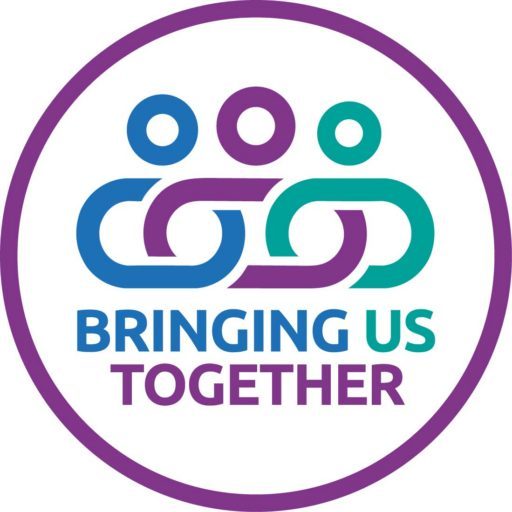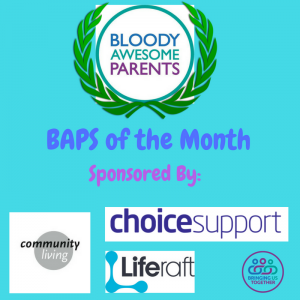F is for: A -Z of Emotional Health and Wellbeing
Today, Angela continues with our A to Z of Emotional Health and Wellbeing.
F is for Fear
 A big emotion that can have such a big impact on our lives. We all have fears of some kind or another and many of us (although not all) will fear something in our lives.
A big emotion that can have such a big impact on our lives. We all have fears of some kind or another and many of us (although not all) will fear something in our lives.
The unknown can be a very scary place to navigate too and developing fears are a way to help us deal with this. Our body is warning us that we are delving into a future or situation we know nothing about and therefore we need to be afraid, be very afraid – OK perhaps not that afraid!
Fear can be behind the outward display of many emotions and can be the root of anxiety for many people. Exploring in depth what the fears are and where they come from is often the first part of any healing process. Although this has to be carefully and gently approached. Too quickly and it may prevent you from being able to access your feelings, or it may be that the sense of fear is so deeply rooted that it could take months of professional therapeutic support to even acknowledge that there is a problem. It could also be that you are not aware of the fear itself – It could be a long ago memory, or a pre-verbal experience*
We can experience old fears and new fears, and new fears based on old fears – sound confusing? It can be and I will try and explain it as best I can do
A pre verbal experience is something that happens either actually or perceived. That whilst you are unable to vocalise what is was, it doesn͛t mean that it didn͛t happen or that it hasn͛t left you unaffected by what happened. Please note this is a very simplistic explanation and potentially does not give it justice to how impactive this can be on a persons life.
When fear is rooted from a long time ago then it can become a voyage of discovery to explore what is was that happened back then that is impacting and affecting your life today. Many fears that are experienced today if broken down into a classic CBT type approach may not be fears any longer but a perceived fear of what it was that scared you at another time in your life – It stays as a fear because it feels familiar.
Which is why gently challenging yourself can be a great way of tackling what we see as our inner beliefs. There are so many different types of fears that are experienced by us:
- Fear of the present,
- Fear of the future,
- Fear of Death,
- Fear of Rejection,
- Fear of becoming trapped,
- Fear of getting things wrong,
- Fear of what others might think,
- Fear of how you might react,
- Fear of how others might react,
- Fear of failure
Many of the “What ifs” we experience revolve around fear – It might not necessarily feel like it initially but if you take a few minutes to stop and reflect on the last time you felt frightened you may conclude, keeping the above in mind, that there are different reasons why you became scared.
I have fears, I am scared of spiders and thunderstorms – common things to be scared of and to fear – right? But what is the actual the fear for me, is it that I don͛t like thunder or I might get bitten by a spider? Well yes on a conscious level that is probably what I would say is where my fear is based but if I delve a little deeper and search a bit harder I might find that there are different causes. I recall once hearing my Mum scream because there was a spider in her room (I think it had fallen on my brothers back when he was trying to remove it and chaos had ensued) – Now I wonder if this is where my fear developed? If a grown up is responding to a spider this way then they MUST be terrifying creatures – It might not, but the theory does make sense.
A couple of times I got caught out in thunderstorms with people who were petrified of them, I cannot recall if I was scared of them before this happened but I certainly was after so this could be a learned fear or response.
But it is one thing knowing what we fear, but something else altogether if we can learn how to respond to them when they encroach on our lives. Of course if you are experiencing fears that are limiting your life experiences and preventing you from doing day to day things then it might be time to seek professional support such as counselling or coaching.
“.. it is not possible To control all external events; But, if I simply control my mind, What need is there to control other things?”
As we know having fears will often provide a barrier to stop you from doing things.
A fear of failure might stop you from trying anything new (it is important to remember with failure that, in order to succeed, you have to take many steps, some up, and almost certainly many back down again before you reach your goal) ,
A fear of rejection might stop you from reaching out to new people, a fear of social situations might prevent you from socializing – You might find yourself making excuses to not attend events or gatherings.
As adults having the awareness of this and challenging ourselves can be really rewarding, with children it might be that much tinier steps are needed with very tiny changes being implemented to deal with the fear. So how about some tips of how to challenge and perhaps even beat some of your fears into submission? Talk about your fears with someone.
Everyone has fears – those that say they don’t are probably not being completely honest with themselves
Give your fears some space – The more we lock them away the bigger they grow.
Debs is one of the co-founders and Directors of Bringing Us Together. She is mum to three child with a variety of SEND and has a great husband.







